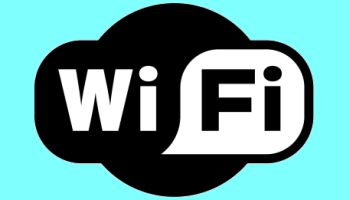

Small businesses and entrepreneurs who offer Internet access to their customers are being urged to properly secure it.
So said the National Federation of Independent Business, a non-profit small-business association. It said that businesses must take steps now to avoid allegations of online piracy.
Record labels, movie studios and other industry groups recently struck a deal where participating Internet providers will issue warnings to customers whose accounts are allegedly used to steal content.
“Small businesses that offer Internet access, such as a coffee shop or a hotel or even a car mechanic with a waiting area, should be aware of the industry’s crackdown on piracy and take steps to ensure their customers aren’t using the service to steal content,” said Jan Meekcoms, the NFIB’s Oregon state director. “Some people don’t want to pirate music from home because they’re afraid of getting caught, so they’ll use the Wi-Fi connection of a neighbour or the coffee shop down the street.”
“Internet service providers wouldn’t have to pull the plug on a customer after the sixth notice, but that’s a possibility, and that’s where businesses have to watch out,” said Beth Milito, senior executive counsel for the NFIB. “Small businesses rely on their Internet connections the same way they do the telephone. It’s how they communicate with customers and vendors. It’s where they do business.”
Businesses can challenge a notice by paying a $35 (£21) filing fee and requesting an independent review, or they may challenge any action in court, but doing so would be time-consuming and take resources away from the business, Milito added. “That’s why small businesses need to take precautions to prevent customers or even employees from using their Internet connection to steal content,” she said.
One easy way to discourage abuse for businesses offering Wi-Fi is to prevent people who aren’t customers from using their Internet connection by requiring a password. “For example, they could print a password on the receipt and change it periodically, to prevent non-customers from using the service,” Milito said.
Businesses can also block access to certain websites and types of websites, she added. “This requires a little bit of know-how on the part of the small-business owner, and it may accidentally block access to legitimate websites, but it also can discourage people from using a business’s network to steal content,” she said. “With more and more people carrying smartphones and even tablets, free Wi-Fi can help a small business attract and keep customers, but unless a business owner uses common sense and takes precautions, those customers could come at a hefty price.”
American space agency prepares for testing of Boeing's Starliner, to ensure it has two space…
As UK and Europe develop closer military ties, European Commission says it will invest €1.3…
Zuckerberg seeks to revive Facebook's original spirit, as Meta launches Facebook Friends tab, so users…
Notable development for Meta, after appeal against 2021 WhatsApp privacy fine is backed by advisor…
First sign of shake-up under new CEO Lip-Bu Tan? Three Intel board members confirm they…
Trump's nominee for SEC Chairman, Paul Atkins, has pledged a “rational, coherent, and principled approach”…